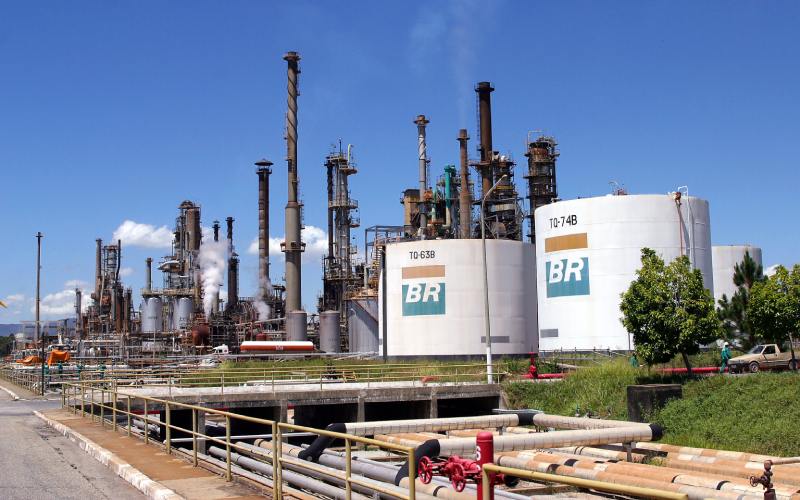Brazil’s Administrative Council for Economic Defense (CADE) is in the 4th revision of the term of cessation of conduct (TCC) of refining, which requires Petrobras to sell 8 of its refineries.
According to counselor Gustavo Augusto Freitas de Lima, the process should be completed in the next 2 to 3 years.
“What are we renegotiating? The timeframe. We are saying at what point Petrobras has to do the teaser [stage of launching the divestiture process]. This timeline is what has been discussed a lot,” he said in an interview with Poder360.

The agreement between Petrobras and CADE was signed in 2019 and arose from a process investigating the state-owned company’s abuse of its dominant market position.
So far, Petrobras has only managed to complete the sale of one refinery: the Rlam, now known as Mataripe refinery, in Bahia. The Arab fund Mubadala bought the unit in February for US$1.65 billion.
The second refinery sold by the state-owned company is Reman in Amazonas, bought by the Atem group in 2021 for US$189.5 million. The transaction awaits trial by the CADE Tribunal, postponed twice. The last one was due to a request by Lima.
On Wednesday, August 17, the counselor said he would like to analyze a proposal of agreement in merger control presented by the Atem group and Petrobras. In addition, the ANP (National Agency of Petroleum, Natural Gas, and Biofuels) has proposed restrictions on the transaction.
Besides Reman, Petrobras has closed deals for SIX (in Paraná) and Lubnor (in Ceará). It is in the binding stage of the Regap disinvestment process (in Minas Gerais) – when the interested parties carry out risk assessments and present proposals. In late June, the state-owned company resumed the process of selling Rnest (in Pernambuco), Repar (in Paraná), and Refap (in Rio Grande do Sul).
“We are today with Reman and the teasers that are in the market [of Rnest, Repar, and Refap] that may not arrive for trial at CADE this semester,” he said.
FUEL PRICES
CADE is also investigating the pricing policy of Petrobras. The state-owned company adopts the PPI (import parity price), equating the values practiced in the domestic market to the import price of fuel.
The council opened an administrative inquiry at the beginning of the year to investigate “evidence of anticompetitive conduct” in the production of fuels. On July 11, the process was extended for another two months.
“We are thinking about the medium and long term, structures, and conduct. Of course, in the end, CADE wants an efficient price. A price that is low enough to be fair to the consumer, but high enough to continue to be supplied,” Lima told Poder360.
According to the counselor, the “problem” of the pricing policy is that the monopoly of Petrobras in the market makes it difficult to analyze the values practiced compared to other agents.
“Our concern is that you use oil price as a signal to combine price increases,” he said. According to Lima, Cade is investigating whether the PPI would be a way to signal the market to increase prices even before the costs of a rise in the barrel reach the service stations.
With information from Poder360

